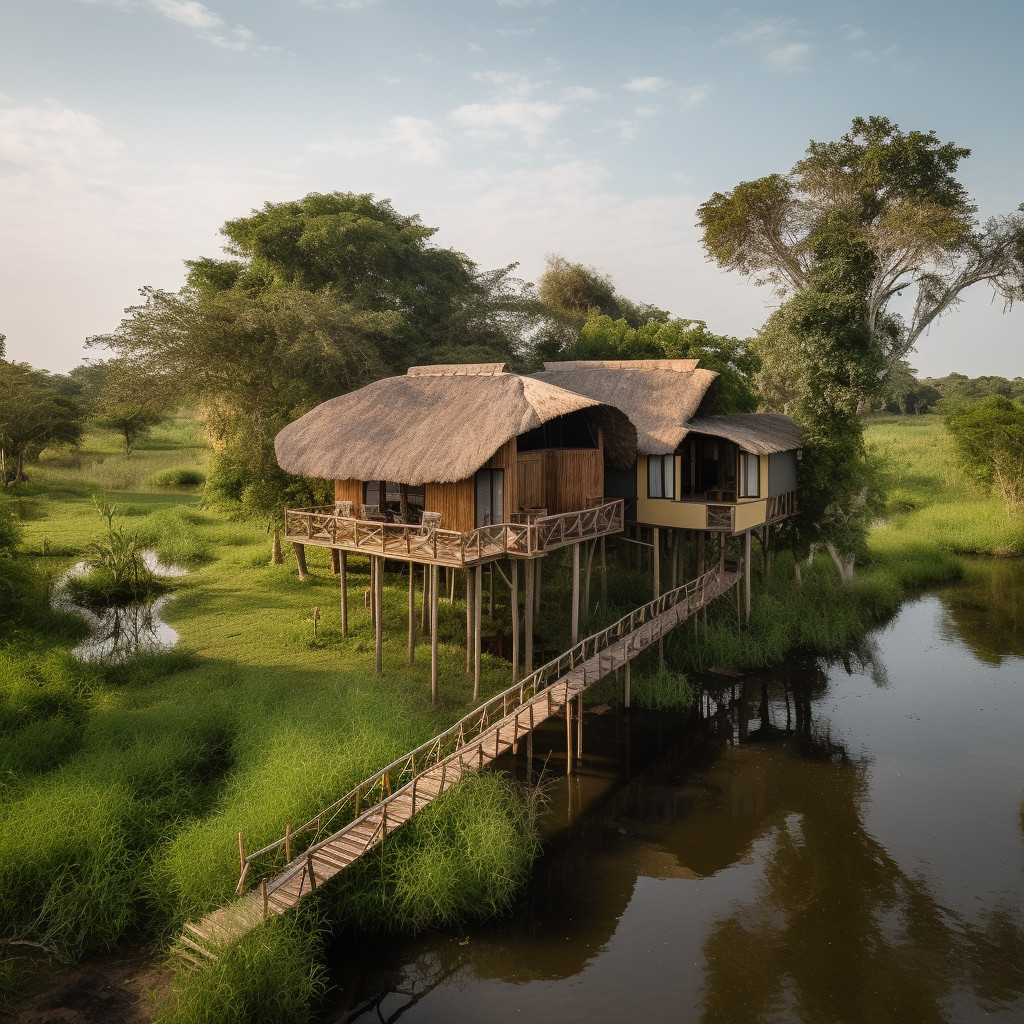Overview
Description:
Yasuni National Park, located in the Amazon Basin of Ecuador, is one of the most biodiverse regions on the planet. Spanning over 9,820 square kilometers, this UNESCO Biosphere Reserve is home to an incredible array of wildlife, including jaguars, giant otters, harpy eagles, and numerous plant species. Yasuni is not only a sanctuary for wildlife but also a critical area for indigenous communities, making it a prime destination for eco-tourism and cultural immersion. The park’s commitment to conservation and sustainable tourism makes it an ideal destination for nature enthusiasts and responsible travelers.
Eco Attractions:
- Biodiversity Hotspot: Home to thousands of plant and animal species, including many that are rare and endangered.
- Napo River: A major waterway offering opportunities for canoeing and wildlife viewing.
- Indigenous Communities: Opportunities to learn about the traditional lifestyles and conservation efforts of local indigenous groups.
- Yasuni Research Station: A hub for scientific research and educational programs focused on the Amazon ecosystem.
Visa and Residency Options
Visa Requirements
Types of Visas:
- Tourist Visa: Allows stays up to 90 days for many nationalities without a visa.
- Temporary Resident Visa: For longer stays, including work, study, or volunteering.
Application Process:
- Apply online through the Ecuadorian Ministry of Foreign Affairs and Human Mobility website.
- Required documents include a valid passport, proof of financial support, and proof of onward travel.
Documentation and Eligibility:
- Valid passport.
- Proof of sufficient funds for the duration of your stay.
- No criminal record or history of violating immigration laws.
Long-term Stay Permits
Extending Your Stay:
- Tourist visas can be extended by applying at local immigration offices.
- Options for longer stays through volunteering with conservation programs or obtaining work permits.
Application Details:
- Submit an application online or at a local immigration office.
- Required documents include proof of ongoing projects, financial stability, and health insurance.
Long-term Options:
- Volunteering programs in conservation and eco-tourism.
- Educational courses related to environmental studies and sustainable development.
Residency Options
Paths to Residency:
- Residency for retirees under the Pensionado Program.
- Investor residency for those investing in eco-tourism or conservation projects.
Residency Requirements:
- Must meet health and character requirements.
- Proof of investment or financial stability for retirees.
Transitioning to Permanent Residency:
- Continuous engagement in eco-tourism and conservation activities can support applications for permanent residency.
Living Conditions
Cost of Living:
- Accommodation: $400 – $1,000 USD per month, depending on location and type of housing.
- Food: $30 – $100 USD per week, with a focus on local and organic produce.
- Transportation: $10 – $30 USD per week, with options for public transit and eco-friendly transport.
Infrastructure:
- Sustainable housing options and eco-friendly healthcare facilities are available, though amenities can be basic in remote areas.
- Reliable internet and co-working spaces for digital nomads, though connectivity can be limited in the rainforest.
Additional Details:
- Opening a bank account requires identification and proof of address.
- Local tax obligations should be explored through the Ecuadorian Internal Revenue Service (SRI).
Community and Networking
Community Overview:
- A small but dedicated eco-conscious community focused on conservation and sustainable living.
Networking Opportunities:
- Regular community events and workshops centered on sustainability and environmental conservation.
- Eco-tourism forums and local meetups.
Social Platforms:
- Facebook groups and local forums for eco-conscious travelers.
- Instagram pages dedicated to Yasuni National Park’s eco-lifestyle.
Eco-Friendly Activities and Attractions
Nature Reserves and Parks:
- Yasuni National Park: Offers guided tours, hiking trails, and unparalleled wildlife viewing.
- Tiputini Biodiversity Station: Known for its research programs and educational tours.
Guided Tours:
- Eco-friendly transport options for guided tours across the park, including canoeing and hiking expeditions.
Wildlife Watching:
- Opportunities to see jaguars, giant otters, harpy eagles, and numerous bird and insect species in their natural habitats.
Outdoor Activities:
- Hiking, bird watching, canoeing, and exploring the rainforest, all with a focus on minimal environmental impact.
Eco-Lodging:
- Recommended eco-lodges include Napo Wildlife Center and Sacha Lodge.
Organic and Farm-to-Table Dining:
- Local dining options such as the restaurants at eco-lodges focus on organic and sustainable practices.
Environmental Initiatives
Conservation Programs:
- Numerous local initiatives focused on forest conservation, wildlife protection, and habitat preservation.
Volunteer Opportunities:
- Opportunities to engage in environmental clean-up projects, wildlife monitoring, and community education programs.
Sustainable Living Workshops:
- Workshops on permaculture, eco-friendly practices, and sustainable living.
Community Gardens and Urban Farming:
- Participation in local community gardens and urban farming projects.
Cultural Insights
Local Customs:
- Emphasis on respect for nature and wildlife, intertwined with indigenous cultural practices.
- Strong community values and conservation-minded practices.
Language Tips:
- Spanish is the official language, with indigenous languages also spoken in local communities.
Safety and Laws:
- Adhere to local guidelines for wildlife interaction and environmental protection.
- Respect cultural norms, particularly around indigenous communities and practices.
Do’s and Don’ts:
- Do participate in eco-friendly activities.
- Don’t disturb wildlife or damage natural habitats.
- Follow the guidance of local guides and respect community norms.
Summary
Pros:
- Rich biodiversity and stunning natural landscapes.
- Strong conservation efforts and eco-tourism focus.
- Vibrant community with deep cultural and ecological values.
Cons:
- Remote areas with limited access to some modern amenities.
- Basic infrastructure in some parts of the rainforest.
Key Reasons:
- Unique wildlife encounters and pristine wilderness.
- Commitment to sustainability and conservation.
- Opportunities for eco-friendly activities and responsible travel.
Useful Contacts and Resources
Embassies and Consulates:
- Contact details for embassies and consulates can be found on the Government of Ecuador’s official website.
Local Government and Services:
- The Ministry of Environment and Water of Ecuador’s website provides information on local services and support.
Essential Services:
- Websites like the Ecuadorian Ecotourism Association offer resources for eco-friendly daily living.
Emergency phone numbers:
- Local emergency number: 911.
- Direct line to the nearest police station and medical facilities can be found on local government websites.
![Romania - Tiny house - [ Minimalist Retreats ] - Design Collectibles & Angel Membership (V1)](https://ihome.org/wp-content/uploads/2024/06/Slide19-300x300.jpg)



![Australia - Tiny house - [ Minimalist Retreats ] - Design Collectibles & Angel Membership (V1) (Copy)](https://ihome.org/wp-content/uploads/2024/06/Slide21-300x300.jpg)











